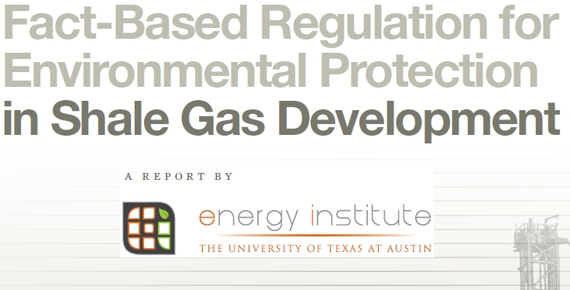New study shows no evidence of groundwater contamination from hydraulic fracturing
16.02.2012
Grundwasserschutz, Gesetzgebung
Hydraulic fracturing of shale formations to extract natural gas has no direct connection to reports of groundwater contamination, based on evidence reviewed in the study Fact-Based Regulation for Environmental Protection in Shale Gas Development released by the Energy Institute at The University of Texas at Austin.
The study found that many problems ascribed to hydraulic fracturing are related to processes common to all oil and gas drilling operations, such as casing failures or poor cement jobs.
University researchers also concluded that many reports of contamination can be traced to above-ground spills or other mishandling of wastewater produced from shale gas drilling, rather than from hydraulic fracturing per se, said Charles “Chip” Groat, an Energy Institute associate director who led the project.
The research team examined evidence contained in reports of groundwater contamination attributed to hydraulic fracturing in three prominent shale plays — the Barnett Shale in North Texas; the Marcellus Shale in Pennsylvania, New York and portions of Appalachia; and the Haynesville Shale in western Louisiana and northeast Texas.
The report identifies regulations related to shale gas development and evaluates individual states’ capacity to enforce existing regulations. In addition, university researchers analyzed public perceptions of hydraulic fracturing, as derived from popular media, scientific literature and online surveys.
Faculty members from across The University of Texas at Austin campus participated in the research, which the Energy Institute funded. The Environmental Defense Fund also assisted in developing the scope of work and methodology for the study. To read the complete report and supplemental information, visit energy.utexas.edu.






